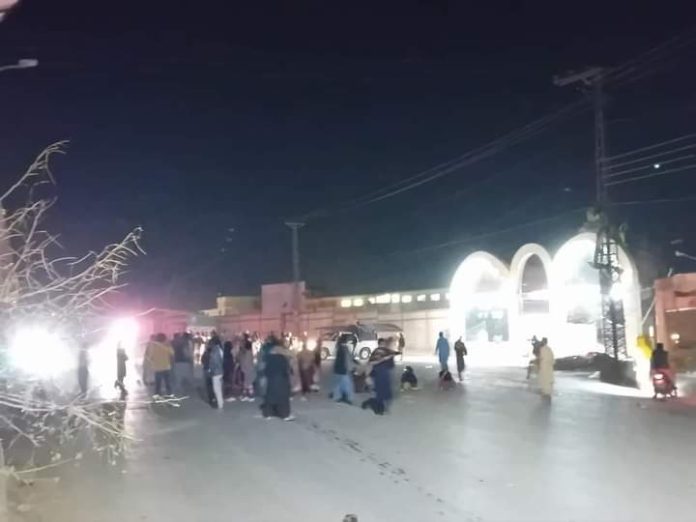After a minor dispute between Baloch and Pashtun student organizations at Quetta’s Balochistan Medical College (BMC), Pak Army backed police raided the college, using extreme force to arrest multiple students. Police stormed the Bolan Medical College hostel, reportedly backed by university security forces, launching a targeted attack to intimidate Baloch community. Tear gas was deployed, and students were forcefully removed from their rooms, with many subjected to severe violence and are in critical condition. Officers singled out Baloch students reflecting the racial profiling and systemic discrimination they face in educational institutions across Pakistan.
This recent police action follows a disturbing incident last month at Punjab University, where two Baloch students were left in critical condition after being violently attacked by members of the Islami Jamiat-e-Talaba (IJT). The incident occurred in Boys Hostel 8, where IJT members, reportedly armed with sticks and firearms, beat several Baloch students, injuring five. University security did nothing to intervene, effectively allowing IJT members to target Baloch students with impunity.
These attacks highlight a larger, deeply embedded issue within Pakistan’s institutions. Baloch students, many of whom migrate to Punjab province and other regions in search of quality education, face persistent discrimination and violence. In Pak-occupied Balochistan, the education system has been neglected and even undermined by the military, resulting in dire conditions that compel many Baloch students to seek opportunities in other provinces. The Pak Army’s strategic underdevelopment of POB has led to crumbling infrastructure, scarce faculty, and a lack of basic educational facilities, leaving Baloch youth with limited choices only to be met with hostility, violence, and discrimination that make them feel like second-class citizens.

